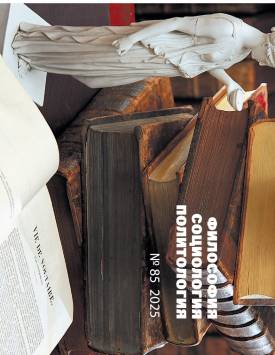Discursive urban studies: method search
Discursive urban studies is an integral area of modern urban research, implemented in the interrelationships of three approaches - transstructural, humanitarian-analytical and epistemological. The transstructural approach can be considered as a new vector not only of urban research, but also of social and humanitarian science in general. At the same time, it is the discursive research of the city that is becoming the optimal field for introducing a transstructural approach to science and testing the first results. This approach integrates polydialecticism and the interpretative ambiguity of the discursive phenomena of the modern city. The concept of translucency was borrowed by me from geological and architectural science. The transstructural approach itself is aimed at developing research hypermodels -“structures with partial configurations” where horizontal and vertical layers intersect and create complex structural compositions. In the analysis of urban discourse, the transstructural method makes it possible to record not only discursive “shifts” (by analogy with geological shifts), but also the points of highest stress at which these shifts occur or will occur. Humanitarian analytics, in turn, is designed to understand the effects of translucency on specific people living and moving in the city, and, if possible, to find certain solutions. In the context of etymological urbanism, the idea of a project city continues to develop, which can be described as a discursive space where conditions are created to meet intellectual and communicative needs, the needs for active social interaction and defending one’s own individuality. The discursive analytics of the modern city pulsates in the four-dimensional coordinates of space-time and communication-knowledge. The transstructural approach makes it possible to identify the patterns of functioning and development of mega-large structurally heterogeneous cities. At the same time, humanitarian analytics and epistemological urban studies are partly project-oriented, since, one way or another, they are focused on finding solutions to problems and contradictions identified through the transstructural method. The author declares no conflicts of interests.
Keywords
transstructural approach, humanitarian analysis, epistemological urbanism, gen-trification, “knowledge society”Authors
| Name | Organization | |
| Savchenko Irina A. | Institute of Sociology of the Federal Center of Theoretical and Applied Sociology of the Russian Academy of Sciences | teosmaco@rambler.ru |
References

Discursive urban studies: method search | Tomsk State University Journal of Philosophy, Sociology and Political Science. 2025. № 85. DOI: 10.17223/1998863X/85/21
